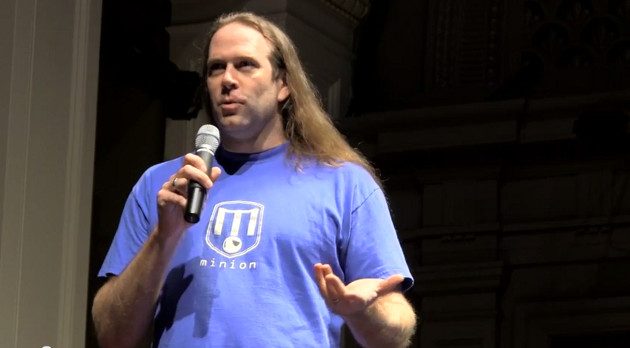Speaking at the Ignite: Seattle event back in May, Joe Ludwig, Programmer at Valve Software (Half-Life 2, Team Fortress 2) delivers a brief, irreverent summary of the history and current state of Virtual Reality.
Irreverent
Joe Ludwig, speaking at the Ignite, Seattle event on May 16th delivers a brief overview of VR as it stands with a tongue-in-cheek glance back in time to it’s origins. Despite it’s brevity, it’s quite a nice potted summary of where we are right now and how uncertain the future is given how new this technology.
Joe Ludwig has been the public face of VR at Valve ever since they announced they’re first public experiment with Virtual Reality and partnership with Oculus VR which resulted in Team Fortress 2: VR Mode being released back in March. Since then, Valve’s source engine based games have slowly received full, native Oculus Rift VR modes — including the legendary Half Life 2.
The Ignite Ethos
For those of you that don’t know, Ignite is an organisation specialising in organising technology-based talks (a la TED), the twist is that anyone presenting has only 5 minutes to speak, with a maximum slide deck of 20 which rotate every 15 seconds. As a result, you get very little waffle in Ignite talks, this one being no exception.







